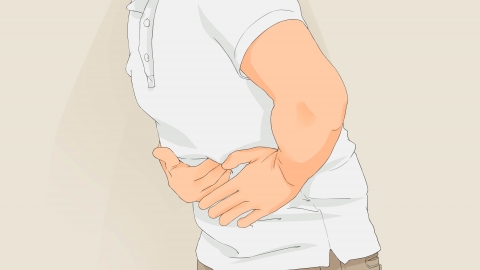Why is diarrhea more common during the decompensation stage of liver dysfunction?
Generally, decompensated liver dysfunction may easily lead to diarrhea due to abnormal bile secretion and excretion, reduced synthesis of digestive enzymes, intestinal flora imbalance, hormonal metabolic disorders, hypoalbuminemia, and other factors. Patients should seek timely treatment at a reputable hospital. Detailed explanations are as follows:

1. Abnormal bile secretion and excretion: During the decompensation phase of liver function, extensive damage to hepatocytes may cause obstruction in intrahepatic and extrahepatic bile ducts, resulting in decreased bile secretion and impaired excretion. This prevents adequate emulsification of fats, making them difficult to absorb in the intestine. Undigested fats entering the colon stimulate increased intestinal motility and raise the osmotic pressure within the intestinal lumen, causing a large influx of water into the intestines and subsequently triggering diarrhea.
2. Reduced synthesis of digestive enzymes: During decompensated liver function, the liver's synthetic capacity declines, affecting the normal production and secretion of digestive enzymes such as pancreatic amylase, pancreatic lipase, and trypsin. Insufficient digestive enzymes lead to inadequate digestion and breakdown of food in the gastrointestinal tract. Increased undigested food residue stimulates intestinal motility, accelerating intestinal transit and thereby causing diarrhea.
3. Intestinal flora imbalance: The liver functions to clear intestinal bacteria and their toxins. During decompensated liver function, the liver's detoxification ability declines, failing to effectively eliminate harmful bacteria, leading to excessive proliferation of harmful bacteria while beneficial bacteria decrease, disrupting the balance of the intestinal flora. The imbalanced flora ferments undigested food, producing large amounts of gas and harmful substances, which irritate the intestinal mucosa, causing gastrointestinal dysfunction and resulting in diarrhea.
4. Hormonal metabolic disorders: During decompensated liver function, the liver's ability to inactivate hormones weakens, leading to the accumulation of certain hormones in the body, such as vasoactive intestinal peptide (VIP) and gastrin. VIP promotes intestinal secretion of water and electrolytes, increasing fluid volume within the intestinal lumen; gastrin stimulates gastric acid secretion, and excessive gastric acid entering the intestines disrupts the intestinal environment and stimulates intestinal motility. The combined effects of these actions lead to diarrhea.
5. Hypoalbuminemia: The liver is the main site for albumin synthesis. During the decompensation phase of liver function, the liver's ability to synthesize albumin declines, leading to reduced plasma albumin levels and resulting in hypoalbuminemia. Hypoalbuminemia decreases plasma colloid osmotic pressure, causing fluid from blood vessels to enter the tissue spaces, leading to edema of the gastrointestinal mucosa. Mucosal edema affects the digestive and absorptive functions of the intestines, impairing the transport and absorption of intestinal contents. Increased unabsorbed substances irritate the intestines, thus causing diarrhea.
Patients with decompensated liver function can take medications such as furosemide tablets, spironolactone tablets, and entecavir tablets under a doctor's guidance. Additionally, patients should pay attention to diet and lifestyle, avoiding excessive intake of greasy and irritating foods and maintaining a healthy lifestyle to reduce the burden on the liver and promote recovery.






